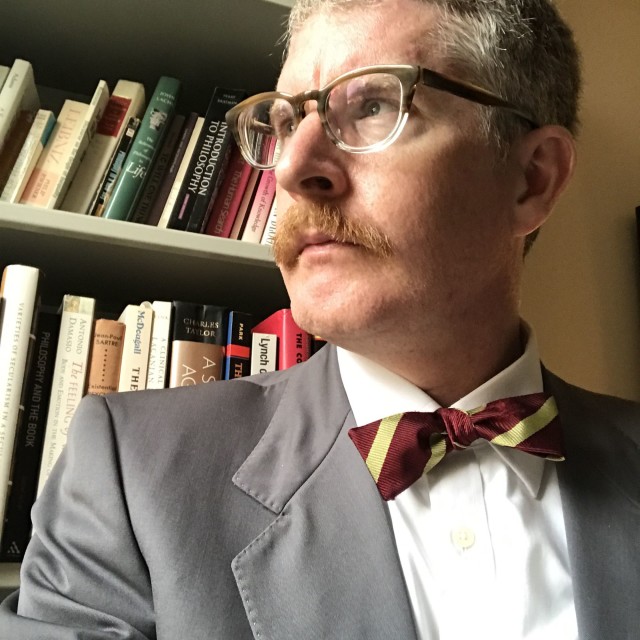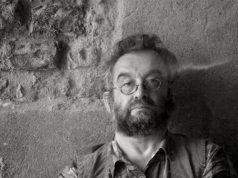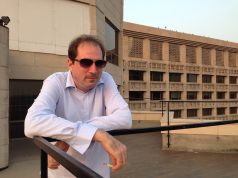A well known philosopher addresses the ongoing debates about Freedom of Speech and censorship on college campuses in The United States.
“Sticks and stones will break my bones, but words will never hurt me.” American kids used to be raised on that adage, and maybe they still are, but for whatever reason its lesson is no longer one they inhabit.
Parents and teachers use, or once used it, to soothe wounded pride and thus prevent an insult from escalating into blows. As a kid, it was annoying to hear, because words so often do hurt at that age. But as one grows, under such instruction, one begins to adopt the adage as one’s own. It becomes a gesture of pride. “Whatever you say about me,” a kid can use it to announce, “I rob you of your power to harm me.” As with most defiant gestures and statements, however, kids who make this one are not reporting a fact about themselves but instead are stating an ideal that they wish to embody. In other words, they are bluffing. I certainly was as the words kept hurting. Truth be told, some of them still do. With maturity, though, comes a greater ability to see that words hurt only if we let them do so.
How does this ability work? First of all, we have to recognize that words and the ideas they communicate are not like food. The moment you ingest food, it has power over you. If it is nutritious it will begin helping you, but if it is poisonous it will begin harming you. This is not the case with ideas. When you hear or read words, taking an idea into your mind, this idea need not affect you — for better or worse — until you believe it. This is because you can take in the idea and put it into a mental container, so to speak, where it can be examined for its truth.
This is a metaphor, of course, but imagine this mental container as a “safe space,” a place in your mind where ideas can be kept and examined without risking your way of seeing the world and living in it. We are not born with such containers. As kids, we believe what we hear, and quickly adjust our ways of seeing and living accordingly. We must come into the world that way, implicitly trusting our parents and teachers, because only so can we absorb rapidly the myriad lessons that we will need to function in a complex and dangerous world. With good parents and teachers, though, one of these lessons will be skepticism: the ability to take in ideas, examining them for their truth or falsity, without permitting them to affect you until you judge them to be true.
If you judge an idea to be true, you can take out it out of the container, incorporate it into your way of seeing the world. If you determine that the idea is false, by contrast, you can keep it stored in that container indefinitely. Refusing to incorporate it into your self, you can inoculate yourself against it by a thorough critique, equipping yourself to refute it publicly if ever it starts becoming popular. Either way, you are improved.
This ability is difficult to acquire. It takes effort, wise guidance, and decades of practice. In short, it takes education (in the broadest sense). Mental containers must be built, they must be shored up with emotional strength, and made useful by the application of intellectual skill. Self-esteem must be secured, the canons of criticism must be learned. Difficult as this ability is to acquire, its widespread acquisition is nevertheless crucial for the success of any liberal society.
Without a citizenry capable of skepticism, such a society cannot promise one of the essential rights: freedom of speech. Protecting its citizens from harm, after all, is the most basic duty of a liberal government. So, if the citizens have not been well-educated, if they do not have internal “safe spaces,” words will harm them. The liberal government of such a society cannot then permit words to be used indiscriminately. It will be obliged to protect its citizens with strict limits on the freedom of speech — thereby becoming illiberal. That is to say, liberal governance over such citizens is impossible.
Now, all governments must impose some limits on this freedom. Some words in some circumstances lead to immediate physical harm: the yelling of “Fire!” in a crowded theater, for example, or direct incitements to violence against particular people. But liberal societies keep these limits minimal. They will certainly not prohibit words that cause merely psychological pain or risk only remote physical harm.
Let’s wrestle for a moment with the most extreme example. Mein Kampf eventually caused immense harm of all types, arguably more than any other book. Although the psychological harm was certain and immediate upon its publication, the danger of physical harm remained remote. What is the best response to the remote danger of such words?
One response, the illiberal one, is to ban them. With the benefit of hindsight, that is what we wish now had been done then. This is because we know now what was going to happen. To those who were in power in the Weimar Republic, however, there was no way to know that the soapbox ravings and prison ramblings of a misfit would cause such harm.
Imagine yourself a citizen of that time and place. Empowering your government to ban all books and disrupt all speeches which might become dangerous, a question on which experts will always disagree, you would be giving your government authority to make an arbitrary decision. The power to limit speech and thus the exchange of ideas would be in the hands of a few. Such consolidation is usually the first step in a tyranny’s grasp of all remaining power. To ban speech in order to prevent tyranny is absurd.
Another response to the remote danger of words, the liberal response, is to give them all — or at least the words that will not cause immediate physical harm — a right to a hearing. Rights, however, invoke correlative duties. Citizens of a liberal regime have the right to freedom of speech, so the government also has a duty to respect that right. But what about the duties of the citizens themselves? Must they, too, respect each other’s speech? This depends on what we mean by “respect,” and which citizens we have in mind.
If I am making a speech you find offensive and potentially dangerous, provoking you and others who are equally angered and afraid to drown my speech with slogans, must I respect your right to shout, thereby yielding the event to you? Or, must you respect my right to make my argument, thereby granting me the silence it takes to do so? Legally, in the United States anyway, neither of us owes the other any such respect. Shouters are not violating the First Amendment any more than are the security guards who remove them.
In such a conflict, the law does not decide this question for us. But morally? What should we do, we who wish to uphold the values of a liberal society? Liberal laws are not sufficient to maintain liberal societies — as has been amply demonstrated by the concerted American efforts in the last two decades to write such laws for peoples who do not share liberalism’s fundamental values. Liberal society must be lived by people who uphold those values. What, then, do those values demand in the midst of our conflict over freedom of speech?
If liberal values are upheld because they are ours, the rhetoric of liberalism becomes a veil for the self-serving preservation of our regime at home and its aggressive imposition abroad. Similarly, these values cannot be upheld blindly, as a matter of faith. Another of liberalism’s fundamental rights is the freedom of religion. Liberal values that are worth adopting should therefore be upheld because they are true. To defend them as such, after discovering for oneself that they are so, requires first an investigation that presupposes no devotion to tribe or creed. Liberal values presuppose instead a regard for the truth, a “safe space” for its pursuit in the mind of the individual, and venues where these individuals meet to pursue it. Liberalism and the pursuit of truth are, in other words, mutually supporting.
Without a regard for the truth, on one hand, citizens will permit their government to say — and eventually do — anything. Americans are learning this quickly under Trump. On the other hand, without a devotion to freedom of speech, citizens cannot really seek the truth. The ideas given a public hearing in a society that has forgotten the value of free speech will become ever more circumscribed by arbitrary limits drawn to avoid harm. In such a climate, the harm to be avoided will be not only immediate physical harm, but also remote physical harm, as well as psychological pain. The possibility of harm and the emotions of the audience will thus become criteria for restricting public debate among intellectuals.
Those who wish to uphold liberal values in the midst of our conflict should therefore fall silent while the speaker makes his argument. This silence should not be passive. On the contrary, once the speaker has been given the opportunity to warrant the conclusion he believes to be true, those with the education to assess its truth from their perspective should do so, just as they should be given a forum to do so. What binds the speaker and audience, supporters and critics, should be a shared regard for truth and the respect necessary to seek it together.
This was the intent of the organizers of a notorious event last month at Middlebury College, in Vermont, where Charles Murray had been invited to speak about his 2012 book, Coming Apart: The State of White America, 1960 – 2010. The book was recognized by the New York Times as one of that year’s 100 most notable works of non-fiction. Interest in it has been renewed by the election of Trump, which turned our attention to the resentments of poor whites. Student protestors planned to disrupt both Murray’s speech and the scheduled response of a Middlebury professor, Allison Stanger, who is critical of Murray’s work.
Angered by Murray’s reputation for racism, among other sins, leaders of the protest believed that giving such a man a forum at their college lent a spurious credibility to his reactionary views. Social equality demanded that he be denied the opportunity to speak altogether, which they nearly accomplished. Leaders of the student protests did not plan to give Stanger whiplash and a concussion, but that did happen. Even if their protest had gone according to plan, though, these students who seem to have known little about Murray and his work deprived themselves of both a first-hand account of that work and an intelligent critique of it. If the event had not been moved to another, safer venue where it was live-streamed, they would have deprived everyone else on their campus of the same opportunity. Why?
The arguments made by them and others who wish to justify their protest adduce both the psychological harm they believed this event would cause some students, and the risk of future physical harm they believed it would heighten. They attacked free speech, then, in order to keep their university a “safe space” (as they understand that term). Whatever regard they have for truth, they believe it cannot be fairly pursued if participants in the debate are harmed by its words. Quoting Toni Morrison, they believe that “oppressive language does more than represent violence; it is violence.”
Experiencing words as harmful, accordingly, they have a serious grievance. They really are experiencing psychological pain when they hear certain words. And yes, they are correct that this psychological danger is greatest for those who have been subjected to a lifetime of oppressive language. More must be done to achieve the democratic promise of equality. But the perfect must not be made the enemy of the good. The solution to this injustice is not for these students to cover their ears, as from a blow. The solution to this injustice is to help these students, and everyone else, to build internal “safe spaces.” With mental containers where they can put words to be examined, they can then learn to defuse false and dangerous ideas before they explode into politics and do physical harm.
When auditors and readers are unable to do this, it is because they have not received the education needed to gain this power over words. It is not their fault. This education must begin with parents who model it for their children, teachers who corroborate this lesson in their classrooms, and a broader society that exemplifies it in its culture and politics. For many reasons — from helicopter parenting styles to poor public education to the dominance of social media — this education is failing.
Universities are also to blame. They are supposed to be external “safe spaces” for respectful and intelligent debate of controversial, sometimes painful, ideas. Such debate is itself an advanced training in the power over words. But to take place at all, its participants must come equipped with some of this power already. If this power is a liberal fantasy, as postmodern philosophies often claim, universities whose curricula are suffused with these philosophies are not going to be venues for controversial debate. And if a generation or more of students graduate from these universities without the internal “safe spaces” needed to pursue the truth, not to mention the intellectual skills needed to find it, a society that depends on the leadership of these citizens is doomed.
If the metaphor of mental containers is nothing but rhetoric, if the rational agent is a liberal myth, if the pursuit of truth is a mask for the imposition of power, there is no real distinction to be drawn between representations of violence and real violence. Morrison and the postmodern philosophies would be right. Words will have power over us, rather than the other way round.
Stanger’s injuries are a worrisome sign that this is inevitable, that universities no longer respect the right to free speech. To be fair, the leaders of the protests did not intend to harm her physically, but their intent was nonetheless to preclude her debate. And without that debate, an opportunity was lost to learn more precisely what was supposed to be wrong, precisely, with Murray’s work. In short, the pursuit of truth — which includes the refutation of error — was compromised. Yet this is the highest purpose of any university deserving the name.
College students across the country are disrupting speeches and demanding that speakers be disinvited with increasing frequency and indignation. This trend not only testifies to a diminished esteem for free speech, with a consequent shift in our universities’ purpose (from the pursuit of truth to the promotion of social equality), but it also portends the collapse of our already teetering liberal society. A generation that neither knows why liberal values are true, nor is capable of demonstrating their truth in practice, will be powerless to uphold them in the crisis that is already upon us.
Patrick Lee Miller teaches philosophy at Duquesne University, in Pittsburgh, Pennsylvania. He is the author of Becoming God: Pure Reason in Early Greek Philosophy (Continuum, 2011), and co-editor of Introductory Readings in Ancient Greek and Roman Philosophy (Hackett, 2015). He has published articles on Heraclitus, Sophocles, Thucydides, Plato, Aristotle, Augustine, Nietzsche, Freud, and David Lynch, but his recent philosophical writing uses Platonism to address current problems such as gender, sexuality, child psychology, pedagogy, virtual-reality, spirituality, indecision, truth-telling, and liberal government.




































